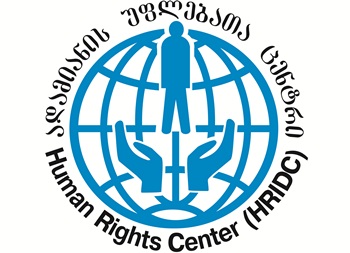Chief Prosecutor’s Office Shall Free the Detained Deacon and His Lawyer from the Obligations under Non-Disclosure Agreement
February 16, 2017

Human Rights Center addresses the Chief Prosecutor’s Office of Georgia to free the Deacon Giorgi Mamaladze and his lawyer from the obligations under the non-disclosure agreement and allow them to effectively use defense mechanism.
The Prosecutor’s Office requested the detained Deacon Giorgi Mamaladze and his lawyers to sign the non-disclosure agreement for what the society cannot hear the position of the defense side. At the same time, controversial versions of the indictment of the prosecutor’s office are disseminated by media sources as if the deacon was plotting a murder. It is a pity that irresponsible statements of senior officials of the Government and Parliament of Georgia further dramatized the accusation – they stated the deacon planned to harm the Catholicos-Patriarch of Georgia.
The Chief Prosecutor’s Office did not clarify in its statement, who was possible victim of the murder but according to the recent information, the prosecutor’s office clarified initial statement, where the murder of the high-ranking cleric was plotted. According to the recent statement, the high-ranking cleric was not mentioned in the indictment at all, more over it was not the Chatholicos-Patriarch of Georgia. The Prosecutor’s Office is speaking about “an individual”, who is not a cleric at all.
In similar situation, the forced silence of the defense side may affect preliminary opinion of the society and undermine fair and impartial investigation into the case.
At the same time, it is important that the non-disclosure agreement obliges the parties not to disclose the content of the case but does not force them to keep silence on the accusations.
The Prosecutor’s Office continues disclosure of the case details on its side. The interrogated witnesses make public statements, who in fact verify the versions of the prosecutor’s office. At the same time, the defense side has signed the non-disclosure agreement and if they breach it, the criminal liability will be imposed on them.
In accordance to the Article 104 of the Criminal Procedural Code of Georgia, a prosecutor/investigator is obliged to ensure that the information about the ongoing investigation was not disclosed to public. For this purpose, it is authorized to oblige the parties of the criminal proceeding not to disclose the notifications in the criminal case and warn the parties about expected criminal liability for the violation of this principle.
The abovementioned provision in the law aims at not disclosing the information about the ongoing investigation to public as it may create threats for the parties and evidence, or encourage alleged perpetrators to hide from the investigation, etc.
In similar situation, the Prosecutor’s Office is also responsible not to disclose the information to public. The non-disclosure agreement shall not place the parties in different conditions and shall not cast doubts on the impartiality of the criminal litigation. At the same time, the prosecutor’s office shall free the detainee and his lawyers from the obligations under the non-disclosure agreement and clarify to the society why this mechanism was applied only in the case of one side of the investigation.
Human Rights Center
News
December 13, 2023
Ethnic minorities outside the peace dialogue
November 6, 2023
‘Peace’ agenda of political parties
Popular
Articles
February 13, 2024



